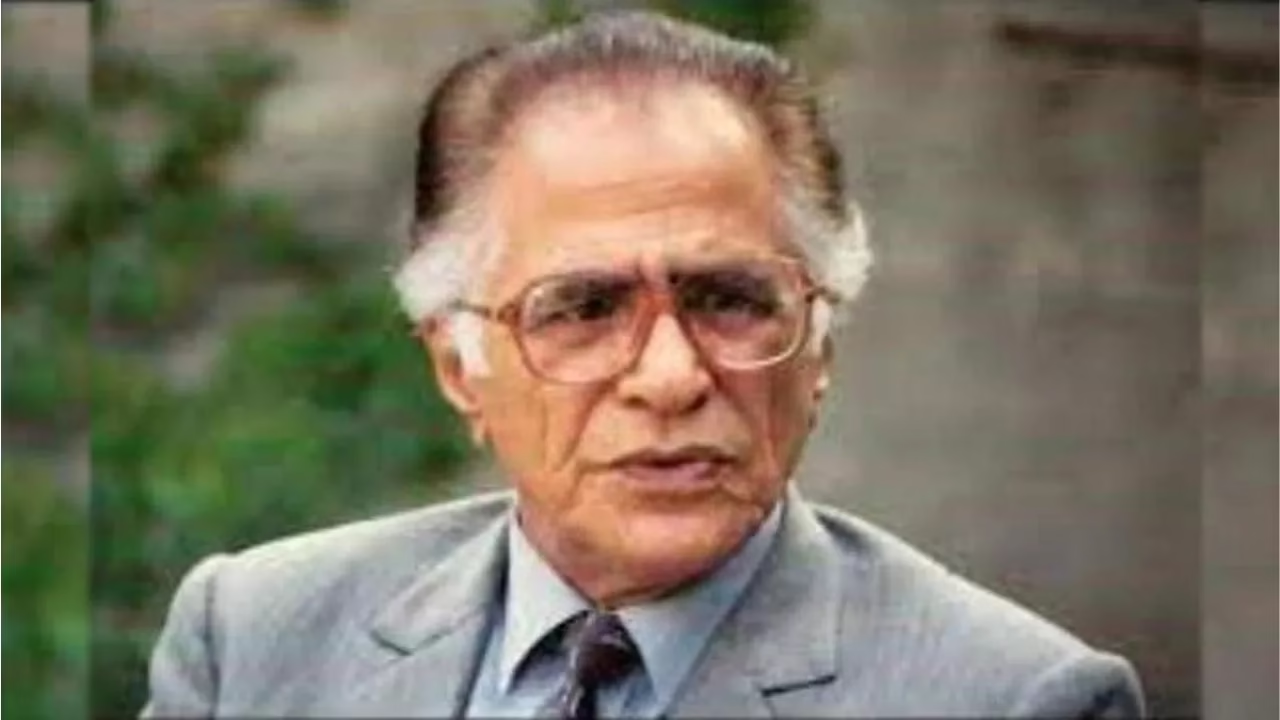The Ahmed Nadeem Qasmi biography is a journey into the life of one of Pakistan’s most influential literary figures—an author, poet, journalist, critic, and a soulful human being who shaped modern Urdu literature for more than six decades. With a personality as diverse as his creative contributions, Qasmi’s work continues to inspire readers, writers, and scholars across the world.
Early Life and Spiritual Roots
Born on November 20, 1916, in Khushab district of Punjab, Ahmed Nadeem Qasmi grew up in a family deeply connected to a Khanqah. This spiritual environment played a foundational role in shaping his personality. His inclination toward Sufism, compassion, and humility was visible throughout his life and reflected powerfully in his writings. The Ahmed Nadeem Qasmi biography reveals that his real name was Ahmed Shah, while Nadeem became his literary pseudonym, eventually forming the iconic name remembered today.
Qasmi wrote his first poem at the astonishingly young age of 11 in 1927. His talent began gaining recognition early, and his first published poem appeared in Lahore’s daily newspaper Siyast in 1931. This poem was written on the death of Maulana Muhammad Ali Johar and marked the beginning of his public literary journey.
A Prolific Writer in Every Genre
One of the most remarkable aspects of the Ahmed Nadeem Qasmi biography is his versatility. He was a master of multiple genres, producing a rich and vast body of work. Throughout his career, he published:
- 17 collections of fiction
- 6 poetry collections
- 3 books of criticism and research
- 6 books of editing and translation
- 3 children’s books
His fiction, in particular, set new standards for Urdu short stories. Qasmi became known for his deep understanding of human emotions, rural life, and the societal struggles of common people. His storytelling blended sensitivity with realism and always carried a profound message.
Many of his stories have been translated into more than a dozen languages, a testament to their universal appeal. Some of his most admired works include:
- Snow of the Mountains
- Naseeb
- Lawrence of Thalesia
- Bhara
- Banamat
- Kafan Dafan
- Raees Khana
- Mochi
- Maa
These stories captured the essence of human relationships, social justice, compassion, and the subtle beauty of everyday life. It is no surprise that Qasmi is often mentioned alongside the greats of Urdu literature such as Munshi Premchand and Saadat Hasan Manto.
Poet of Depth, Simplicity, and Emotion
In poetry, Qasmi’s style was thoughtful yet accessible. His verses carried emotional depth without unnecessary complexity, making them relatable to readers of all ages. Whether exploring themes of love, humanity, or spirituality, he wrote with honesty and clarity.
The Ahmed Nadeem Qasmi biography cannot be complete without acknowledging how his poetry carved a unique place in modern Urdu literature. His ghazals and nazms continue to be quoted widely, while his themes remain timeless.
Honors, Awards, and Influence
Ahmed Nadeem Qasmi’s contributions were recognized at the highest levels. He received:
- Tamgha-e-Husn-e-Karkardagi (1968)
- Sitara-e-Imtiaz (1980)
These honors reflect the extraordinary impact of his work on Urdu literature and the cultural identity of Pakistan.
His influence extended beyond borders. The celebrated Indian writer, poet, and filmmaker Gulzar openly referred to Qasmi as his spiritual teacher. This admiration highlights how deeply Qasmi inspired creative minds across South Asia. Many contemporary writers also consider him a guiding force in their literary journeys.
Legacy That Lives On
No study of Urdu literature is complete without exploring the Ahmed Nadeem Qasmi biography. Though he passed away, his presence remains alive in his writings, in the hearts of his admirers, and in the literary traditions he helped shape.
His stories continue to be part of academic curricula, his poems continue to be recited, and his influence continues to guide generations of writers. Ahmed Nadeem Qasmi was not just an author—he was an institution, a bridge between classical and modern literature, and a voice of wisdom rooted in humanity.
The Ahmed Nadeem Qasmi biography reminds us that true literary greatness is born from sincerity, depth, and an understanding of human emotions. From his humble beginnings in Khushab to his rise as one of Pakistan’s most respected writers, Qasmi dedicated his life to literature with passion and purpose. His legacy remains a shining chapter in the history of Urdu language.



